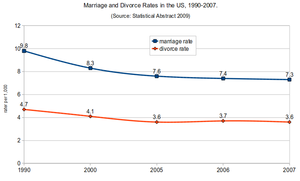I’m reading a magazine to pass the time in my gynecologist’s office when I stumble upon the incredible “historical record” of one 18th century Russian peasant woman who reportedly gave birth to sixty nine children between the years of 1725 and 1765 (without fertility aids, of course). Apparently, she did this with 27 multiple birth pregnancies and with only two lost in infancy.
“Not possible,” says my gynecologist when I share the figure with her. That was my reaction too. Nonetheless, even if the figure was doubly exaggerated, that still leaves a staggering number of children that the human body can create, and a puzzling question as to why any woman would want that many children. Was she looking to start her own sports league or productive work force for the family business?
According to Yahoo, the “modern” record for the most number of children born to one woman goes allegedly to a Chilean woman (now in her mid 60’s) who delivered 64 babies, though the article qualifies that Chilean birth certificates are “something of a less-than-serious concern in Chile.”
Most number of children to one father, you ask? The last Sharifan Emperor of Morocco, Mulai Ismail(1646-1727) reportedly sired somewhere around 800 children with 500 wives – a busy man indeed. One wonders how he had any time to run an empire and one can well imagine many other legendary rulers throughout history who must have had impressive fleets of children as well.
Here are a few more staggering reproduction figures: The youngest woman to give birth was, in fact not a woman at all but apparently a five year old Peruvian girl who delivered her baby boy by cesarean in 1939 in a small Andean village. The community thought she had an abdominal tumor. A pituitary malfunction was speculated to have caused the onset of her menstruation at three years of age. The baby lived and welcomed his brother thirty three years later. If this story is true it is disturbing by so many accounts but what I wonder is did they find the man who molested her and cut off his nuts? Unfortunately not – the father remained a mystery.
The youngest father on record? A twelve year old boy from England who had a son in 1998 with his fifteen year old girlfriend.
Oldest Father? A ninety three year old Australian man who died at one hundred. The oldest mother was a Spanish woman who had fertility assistance in producing twins at sixty seven in 2006 (which of course sparked international controversy).
Here’s another disturbing statistic: According to Guinness World Records, in 2010 the “youngest identified group of drug addicts:” Unlucky babies born to young mothers in rural Afghanistan who are addicted to heroin and opium from the abundance of poppy crops in their country. In addition to passing the drugs along to fetuses in-uteri, mothers are known in rural regions to blow heroin spoke at the babies to calm them and relieve pain. The U.S. State Department “has categorized them as the youngest drug addicted group ever found for which there are no established treatment protocols.”
Finally, according to Nicholas D. Kristof in an Op-Ed article of the New York Times this past Mother’s Day, “215 million women worldwide have an ‘unmet need’ for family planning, meaning they don’t want to become pregnant but aren’t using effective contraception.” He continues: “The Guttmacher Institute, a respected research group, estimates that if all the unmet need for contraception were met, the result would be 94,000 fewer women dying of pregnancy complications each year, and almost 25 million fewer abortions each year.”
I ask you: Do these figures not call out a need for affordable birth control and accessible family planning education worldwide?
Related articles
- The Right To Breed Again and Again and Again… (whynokids.com)
- Family Planning in African Poverty (part one) (whynokids.com)
- Family Planning in African Poverty (part two) (whynokids.com)
- How old is the U.K.’s youngest grandfather? (Hint: under 30) (theglobeandmail.com)
- Medical Panel Recommends No-Cost Birth Control (npr.org)
- Contraception Education (mademan.com)
- Family planning as a global priority (devex.com)
- Women in Haiti embracing birth control despite taboos (sacbee.com)
- Women with Unmet Need for Family Planning (chartsbin.com)
- Family planning key to safe motherhood (testsites.com.zm)












